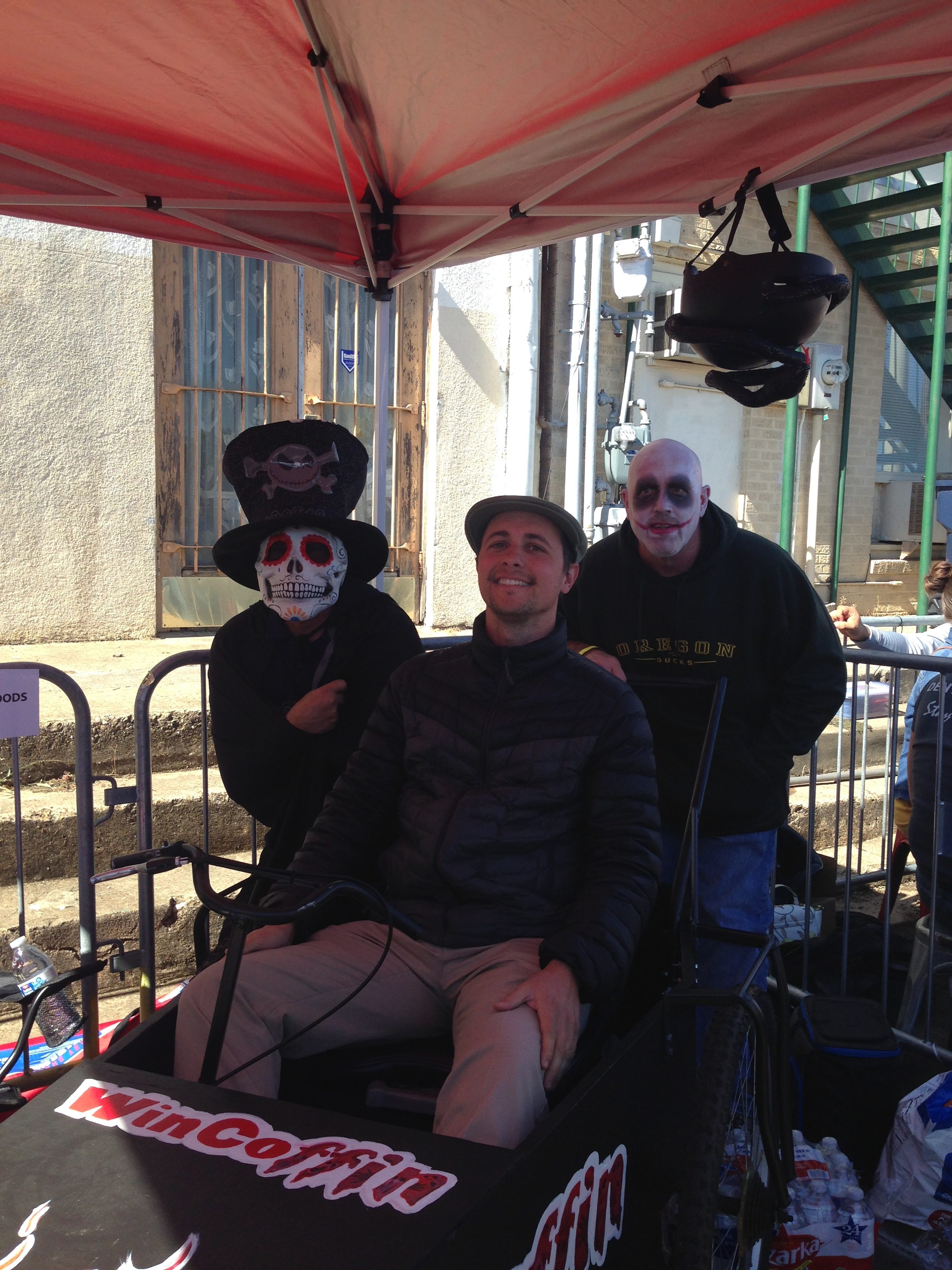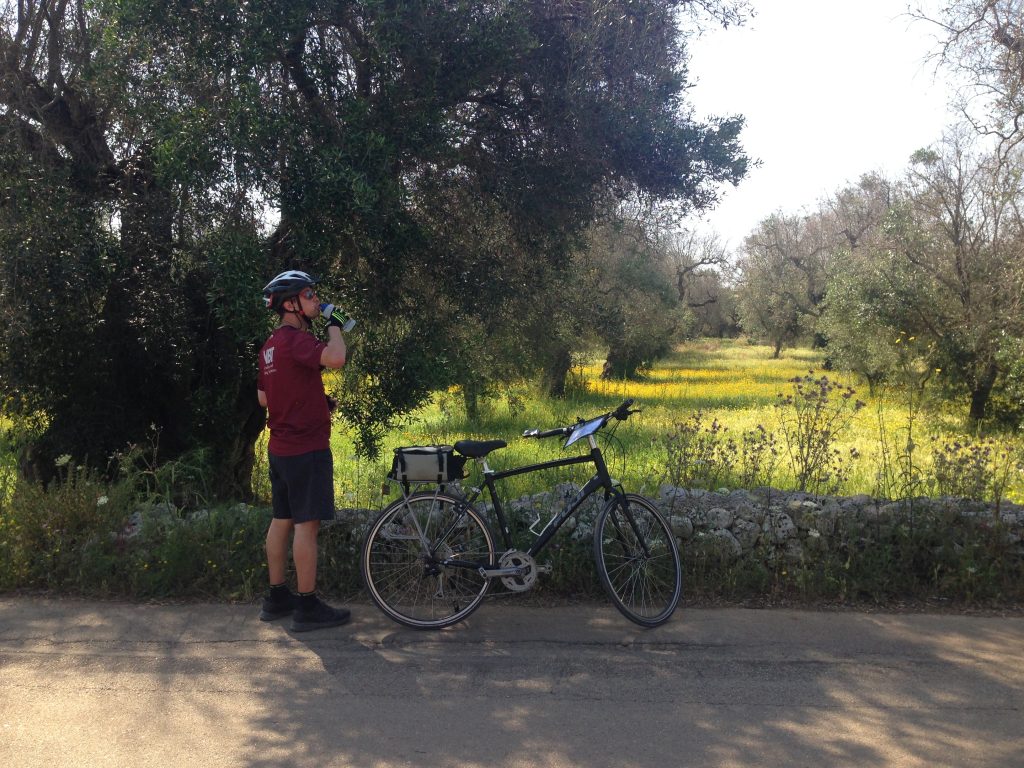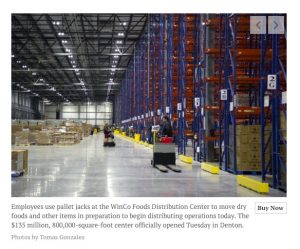adults with autism
The original in social distancing
I have to admit that Sam surprised me a little when he came home from work one night and said that social distancing was hard. He’s always kept a healthy distance from others.
But I could understand, too. People are buying a crazy amount of stuff in the grocery store. He and his co-workers are really hopping to keep up.
I asked him whether he remembered his perfect attendance in middle school. He got a special award for never missing a day from sixth through eighth grade. I told him that by middle school he’d gotten so good at keeping his distance from others that he never was close enough to get the germs. He had a good laugh about that.
Sam didn’t like to be held as an infant or toddler. At first, it was hard to figure out how to comfort a child who couldn’t stand to be hugged, or touched, or sung to. Eventually, we discovered things that worked and, as he grew and changed, discovered even more.
As an adult, Sam has a way of attending in a conversation – a sort of standing up straight, full soldier attention to your presence – that even if he never shakes your hand, or hugs you, or even really makes good eye contact, you somehow know that he is truly present. It’s such a gift to have learned that from him.
And when you are being present, you know when the other person is present and responsive to you, too. When I’m out running or walking with the dog, or making a brief trip to the grocery store, people are doing what Sam does (although maybe with a little more eye contact) as they reach out to chat these days and that doesn’t feel socially distant at all.
It’s in the moment, present, responsive.
I hope it never goes away.
Learning from the world around you
Young parents recognize when the kids start to absorb information from the world around them and (we hope) act accordingly. Kids are watching and listening and thinking and so you’ve got to take a little more care with the grown-up stuff.
We’ve got to let the rope out eventually, since the kids need to fly on their own. But we might not want to be the scary one with all that grown up stuff, because life’s pretty scary on its own.
The ability to absorb from the environment didn’t work the same way for Sam as it did for his brother and sister. As a child with autism, his attention could be hyper-focused or super-zoned out. When he was a toddler, we were never quite sure how much he absorbed from what was going on around him. But over the years, we coached and cued. We became more confident he was seeing what he needed to as he grew up and responded.
(For example, we worried at first that he didn’t understand traffic and would never watch for cars. Eventually, he proved he could and would learn to drive.)
I’m not sure what helped him recognize that important things he needs to know come in small, even sneaky ways. Over the past year or so, I’ve watched him notice small things going on around him far more than he used to. He’ll pick up the newspaper from the table and read a bit because the headline grabbed his attention. He might make a comment about the story over breakfast.
He’s learned when to ignore email and when not, which really a miraculous thing when you think about it. He still doesn’t like opening his snail mail (to be truthful, I don’t either, so what is with that?) but when he sees the envelopes that matter, he doesn’t truly ignore them. He knows what’s inside and opens them when it’s time to pay the bill or renew the tags, etc.
A few days ago, he saw a flier advertising a Social Security workshop in the pile of mail. He asked a lot of questions. He’s still healing from the stress of repaying a substantial amount of benefits last year. We knew when he got his full-time job at the warehouse that his benefits could finally end. We happily went down to the Social Security office and gave them notice, but it took months for them to stop sending checks. I cautioned Sam to sock that money away — they would eventually ask for it back. They did, and he was ready, but it was still really stressful for him.
He thought perhaps the flier came from Social Security and he needed to attend. I’m not sure if there’s a rule of thumb to help him wade through that type of information. I’ll think about it. But in the meantime, I told him, ‘nah, that flier was for me because I’m getting old.’
.
Let there be dancing
As important as dancing is to Sam’s social life, I’m a little surprised that I haven’t blogged much about it before.
Last weekend, Michael and Holly got married. Sam was the usher. He enjoyed dressing the part and hanging with the groomsmen, but I think he looked forward most to the dancing. During the reception, the DJ spun a wide variety for us. We two-stepped and did the mambo to a salsa tune, and more.
The television show, Dancing with the Stars, was Sam’s favorite for the longest time and he would try to do some of the moves when he thought I was out of the room.
I don’t know how I stumbled on the east coast swing dance club in town, but after I did, I planted the seed that he could join and learn more. It took a little while for Sam to warm up to the idea. After he’d gone once or twice, I asked Michael and Holly to go with him once and make sure everything was ok. (It was.) Over time, I’d hear from neighbors, friends and acquaintances about how well he was coming along. He goes at least twice a month, including asking off work for the Friday night dance that includes some extra lessons.
Michael and Holly had a dollar dance over several tunes during the reception last Saturday. Sam queued up twice with ten-spots to dance with Holly. I was ready with the video for the second dance, but as you can see, the kids got silly and they were upstaged a wee bit.
After the DJ’s “last dance” call, they had just one more: Bruno Mars’ Uptown Funk. It’s just about Sam’s favorite tune of all time. The kids all got in a circle and started their dance-off. Sam was second in the ring, and the crowd just lost it when he entered and danced his moves. There is video out there in the wild somewhere, y’all, but I don’t have it. (If it surfaces and I can publish it, it will be here. I’m not sure the official wedding videographer got there in time.)
Let there be dancing.
Dream Driving
Some dreams aren’t nightmares, but they leave you feeling unsettled in the morning. For me, the best remedy is to get them out of my head and move on. Recently, we discovered that works for Sam, too.
Like his mother, Sam is not really a morning person, although I’m not sure what a morning person is. We both feel fine when we’ve had enough sleep. However, we don’t feel like we’ve had enough sleep if we have to wake up before first light, even when we go to bed early.

Sam steps into the coffin that his supervisors would later race during Denton’s Day of the Dead festival.
Sam rarely talks about his dreams, unless they are nightmares. But he struggled and complained about that “morning funk” this fall, so a few weeks back, I asked him if he’d had a bad dream and what it was about.
He said it wasn’t really a bad dream, but he didn’t like it. He dreamt he was driving and that, in his dream, when it came time to stop, he somehow wasn’t able to move his foot from the gas pedal to the brake. He worried it could happen in real life.
I didn’t want to tell him it would never happen, because it’s important to tell the people you love the truth. And the truth is, just before a wreck, you are keenly aware how fast things are happening in front of you and how your car isn’t doing what you wish it would.
So I told him I had my own version of that dream, a recurring one. In my dream I am riding in the back seat of a car, careening somewhere fast, when I look up and realize that no one is driving. From the back seat, I struggle first to get my hands on the steering wheel, and then try to get up front to get to the pedals, but I never seem to make it.
Sam laughed and said my dream was really funny. I told him that the reason my dream was funny was because it was both relatable and ridiculous. I asked him if it made him think about his dream differently, and he said, yes, it made his dream kind of funny, too.
Then I asked whether he thought the dreams could be a metaphor for something.
And this is where I am so very, very grateful for Sally Fogarty and the other teachers who were on Sam’s special education team when he was in middle and high school. Sally announced at one of the annual planning meetings that Sam’s speech had come along enough that he would pass the usual tests meant to detect deficiencies. But, she added, we all knew that Sam’s language skills still needed work. She suggested that she administer another diagnostic test and develop a plan that would help him with more abstract language skills–analogies, idioms, metaphors and the like.
A few years later, Sam and I happened to be driving into Fort Worth and a billboard in Spanish caught our eyes. I read the billboard and understood the words, but I didn’t understand what the billboard was saying. I asked Sam, who was also studying Spanish, if he understood the billboard, because I couldn’t. And he said, “Well, that’s because it’s an idiom.” And then he told me what it meant. That was 15 years ago, and it still makes me tear up.
Sam agreed dream driving could just be the general way we feel about how our life is going, and maybe we don’t need to worry that we can’t always steer, and honestly, we don’t want to stop.
The children are watching
Sam and I enjoy going to the movies once a month or so. We are lucky that two theaters with lounge seating are within an easy biking distance, including our newest favorite, Alamo Drafthouse.
Sam’s not a fan of action films, or films with dark themes. That includes super-hero movies, although he took a chance and really enjoyed Spider-man: Into the Spider-verse. (Best. Movie. Ever. But I digress.) We both enjoy a good story well told, which means, for starters, that we don’t miss anything by Pixar.
Recently, we went to see Peanut Butter Falcon. I knew we were taking a chance that story could come up short. Hollywood likes its tropes, and stories that include people with disabilities can be super-tropey. But the star, Zack Gottsagen, has Down syndrome and the movie’s writing and directing team had a clear, deep understanding of self-determination for people with disabilities.
The story resonated with Sam. I watched Rain Man again recently on Netflix, and Sam drifted in and out of the room as it played. Dustin Hoffman was brilliant but he doesn’t have autism – and that matters. After Peanut Butter Falcon, Sam and I talked a lot about the story and the characters. We talked some after Rain Man, but not as much as with Peanut Butter Falcon.
Then I stumbled upon another movie, Keep The Change, which features actors with autism. The story line was authentic. Sam got to see adults with autism fall in love, and I cannot tell you what a gift it is to have that on the screen.
Movies are better when our world is fully reflected on the screen. In other words, a story will come up short if the character with a disability is there primarily to challenge the protagonist’s humanity. Movies, like any media, imprint and reinforce social constructs. I’m rooting for the stories that push our humanity toward justice – and love.
Whether to disclose
As part of their initial job training two years ago, Sam and his cohort at the WinCo warehouse received important information about when, or whether, to disclose their disability to others.
We didn’t give a lot of thought to this issue before sending Sam out into the world. We had always treated it as a need-to-know basis. Not surprisingly, outside of school and the workplace, most people don’t need to know.
The Texas Legislature passed a law effective this month that lets people with autism and other disabilities who drive to privately disclose their disability so the information comes up with their license plate. That way, a police officer or highway patrol officer knows there may be some communication challenges ahead and to take their time.
Other public encounters can benefit from some level of disclosure. On both of our cycling vacations, we didn’t lead our ice-breakers with any kind of disclosure. But our tour leaders and fellow cyclists soon figured out Sam’s autism. They watched what we did to accommodate him and followed suit. In Germany, it became a running joke with one woman that Sam tried more new foods than her persnickety husband did. We fielded a few questions on the side, but our travel companions were simply curious about our family; they weren’t prying.
One of the lessons Sam and his cohort learned during initial training was that disclosing your disability often isn’t necessary and that it also comes with some risk. “People can take advantage of you,” Sam told me. Sam’s rather risk-averse, so he’s not inclined to disclose and we’re happy to follow his lead.
The other night, I shared a travel horror story from one of my recent trips, in hopes that he might benefit from my experience. I thought if he ever got patted down, he should disclose his disability to the TSA agents.
In my latest travels, the screening machine flagged my underwire bra. I was upset that they intended to pat down my side. I insisted on a private screening, which really bugged them and the passengers behind me. The twenty-something girl behind me was obviously panicked about missing her flight. Magically, they flagged her every limb, and her crotch, and she let them pat her down everywhere, all the while she fussed at me for not complying. I was sad for her.
Sam said he’s never been patted down at the airport. (I’m patted down Every. Single. Time. Don’t tell me it’s random.) But he had one of his own air travel horror stories that he had not told me about before.
He was in line to board the plane when the crew announced that they were going to do a bag search at the gate. Sam was caught off-guard, as I’m sure many other travelers were. (Perhaps, dear internet readers, you know what that is about and can explain in the comments below. We could only guess what it was about.) He wasn’t able to re-pack his bag quickly and other travelers were getting impatient with him. That, of course, unnerved him even more and made it harder still for him to recombobulate. A gate attendant finally had to help him.
I told him that might have been a good time to disclose his autism–not to the impatient people around him, but to the gate attendant who was helping him. I said most people might not understand why you need more time because autism is a hidden disability. They might even be embarrassed at their ignorance and impatience for not recognizing it themselves, I said, because most people are good and want to be kind to others. I told him that as you disclose to the gate attendant, the angry people would overhear it and probably change their behavior toward you, unless they are are real jerks.
Sam disagreed that it would have been a good idea to disclose, and that is his prerogative. It’s not his job to help the world not be a jerk.
Cycling close to the sun
Sam said he liked the country roads best on our family bicycling trip to southern Italy. There are 60 million olive trees in Italy and I do believe we pedaled past a hefty percentage of them.
In this photo, you can see he stopped next to an olive tree that was a thousand years old. Some of them look great. Others are succumbing to a bacteria that came over with an insect stowed away on South American-made pallets. Many of the olive groves are small, family-owned plots that produce enough to supply the family with a little more to share. (You can buy olive oil in Italy the way we buy craft beer here in the U.S.)
On the backroads, you can trade that ten-European-cities-in-seven-days experience for a different kind of intensity. What’s not to like when you share miles of road lined by stone walls with just the occasional tractor or Italian nonno driving his 1967 Renault Quattro to the village? The roads weren’t perfect, but Sam didn’t mind dodging the potholes. Once, along a highway, I watched him drift, ever so slightly, into the main lane so that he could cycle over the rumble strips.
On the backroads, you can catch the fragrance as you pedal by chamomile, star jasmine, ginesta (broom) or the pine trees.
You can see a farmer having a sandwich in the shade of an olive tree. Another farmer stops picking to pass a handful of fresh figs over the wall to a fellow cyclist. Old men sit on benches in the center of the village and wish you “buongiorno!” The village center doesn’t look like it’s changed much at all in several hundred years.
Sam was ready for the routine, having gone on a similar tour last fall in Germany, Austria and Switzerland. We pedaled a good pace and still found time to relax in the swimming pool after covering 20-30 miles each day. Nobody lost anything along the way. The only real drama came the last day. A driver honked and then turned right in front of Paige, thinking that Paige would stop (uh, NOT) and then nearly hitting her on her bike. One of the tour leaders detoured to yell at the driver. The moment was so quintessentially Italian that I couldn’t help but live vicariously through the movie she was making for me right then and there.
Sam downloaded two dictionaries before we left the U.S. and explored the language often. He always tried to order in Italian. Periodically, he also thought of things that would increase our comfort and success in living out of a suitcase for days at a time. He inspired me to start a new checklist for our next trip — when or wherever that might be. At one point, he told me he thought he could take the next tour by himself.
He probably could, but that was never a goal of these trips. Traveling brings new perspectives. We bring some of the romance home by letting the experience change the shape of our daily lives. Sam grows through travel just like the rest of us, only a little bit more. He has always cycled a little closer to the sun.
First Installment
Sam’s a bona fide taxpaying citizen now. It’s a funny thing to cheer, but cheer we do — because becoming a contributing member of society is the dream of every adult, right?
When Mark died almost 12 years ago, my sister, Karen, took me practically by the hand down to the Social Security office to apply for survivor benefits for the kids. Michael and Paige were both under age 18. And eventually, Sam collected, too, because Mark was supporting him when he died.
Michael and Paige’s benefits ended the summer after they graduated high school. Sam’s benefits continued for years because he never earned enough money until he started at WinCo two years ago.
We were faithful and went back to the Social Security office to tell them that Sam got a good job and would no longer need benefits. We expected them to stop sending checks much sooner than they did.
As the checks continued to arrive, I advised Sam to save as much as he could because eventually Social Security would ask for that money back. This was not our first rodeo. Back when the agency started Sam’s benefits (it took several extra months for his to begin), no one did the math against what was already coming our way for Michael and Paige. I had no idea there were maximums or what they were for our family. And when Social Security figured it out, we owed a lot from the overpayment. It hurt, but we paid it all back.
By the time Social Security figured out earlier this year when they should have stopped sending checks to Sam, the balance due was a stunning amount of money. Sam stresses about it sometimes, but we took this as a learning opportunity.
I helped him make a repayment plan and the whole concept of budgeting is sinking in. Sam has always done a good job with his finances, but it’s not hard to do a good job when you don’t really spend much money. This time, there’s some real pressure on his earnings, and he’s figuring it out. He’s gone several months now without the safety net. And, tonight he wrote a check for his first installment to repay the overpayment.
Yep, a bona fide taxpaying citizen.
Overheard in the Wolfe House #316
Sam: What’s an ‘old-timer’?
Peggy: I think different people might use that label to describe different things. What do you think it means, Sam?
Sam: Someone who doesn’t use new technology.
Peggy: Oh yeah?
Sam: And someone who talks about the old days.
Peggy: Then I guess I’m not an old timer.
Sam: Really?
The Grand Tour
I missed the big day when the WinCo warehouse had its open house almost two years ago. Michael and Paige went with Sam, and got to see where Sam had trained as well as the spot where he works inside that massive building.
Sam will celebrate his second anniversary with the company in March. A few days ago, I took part of the day off to ride to work with him and finally get a tour of the place.
(Here’s a news story from the opening, shown in the Denton Record-Chronicle photo shown above.)
Sam’s unit unpacks small dry goods, such as shampoo and lotion, that are continuously delivered to the warehouse. They move them into bins that can be quickly accessed for shipment to stores in the region. (Sometimes he works on that repacking side, too.) They keep about 18,000 inventory bins stocked at all times. Much of the work is automated, which means he’s working with computers and all kinds of lifts and conveyors.
Once they’ve unpacked a delivery box, they throw the empty box up on a conveyor to the cardboard compactor, which was the highlight of the tour for my inner 8-year-old. The grown-up in me nearly melted watching his face light up showing me how it all worked. He is clearly enjoys his job, and is good at it — his supervisors told me as much, too.
When Sam first joined the workforce almost 15 years ago, a dear friend in the rehab department at the University of North Texas told me that Sam would learn and grow a lot on his first job. I was so grateful that he told me that, because I knew not to be surprised, and to be alert and responsive to those changes. I remember how challenged I felt entering the work force (a feeling that returns with each new job, and sometimes each new assignment, honestly), but I wouldn’t necessarily have connected to those experiences and been ready to help Sam in reinforcing his growth and understanding all of his new experiences, rather than being bewildered by them.
For example, I told him he might be surprised at how tired he would feel going from part-time to full-time work, especially such physically demanding full-time work. He was happy I shared that experience. After a few months, he was ready to advocate for himself in a powerful way: to get moved to swing shift. He knew he was not a morning person and that he needed more rest than he was able to get working day shift.
He also gained a lot more confidence in his strength. I don’t know what it is about autism, but it seems like lots of kids with autism don’t grow up with the core strength that most neuro-typical kids have. Horseback riding probably helped Sam get stronger than he was initially wired for.
But I knew WinCo put that over the top when I asked him to help me load a dryer on the back of my pickup, the kind of two-person job we had done many times over the years. I planned on taking the dryer to my girlfriend in Houston, who’d been all but wiped out by Hurricane Harvey’s flood waters. After I put down the tailgate and anchored the ramps, I turned around to see that Sam had already loaded the dryer on the dolly. He walked it all up the ramp without a word, like the grown-ass man he is.



